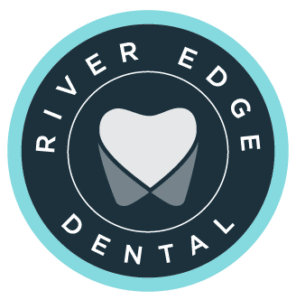Your smile is your key to making good first impressions. When surveyed about what people remember from the first meeting with someone, nearly half (48%) said the smile, more than the words a person said (25%), the clothes they wore (9%), or how they smelled (8%). And what your smile says about you is crucial.
Establish Professional Standing
When people see your smile, they make instant judgments about you, and these judgments can have a major impact on your professional relationships. People immediately make judgments about your:
- Intelligence
- Success
- Trustworthiness
- Friendliness
- Confidence
All of which speaks to your potential job performance and compatibility with the office environment. So it’s no wonder that people with better smiles are more likely to be offered a job than people with the same qualifications but a less attractive smile – and they’re more likely to be offered a higher salary. Plus a good smile makes people more likely to want to buy something and can really help you close a deal. It’s even been shown that smiling can increase the odds you will get financing for a crowdfunding campaign.
Personal Attraction
Your smile is vital to your ability to meet new people. Both men and women put a smile on the top of their wish list for a new partner. In addition, a healthy smile makes you look more:
- Attractive
- Approachable
- Kissable
- Healthy
- Memorable
All of which makes it more likely that you will attract a date. This is true whether you’re going out in person or setting up a profile on an online dating service – people are more likely to “like” or swipe your profile if you have an attractive smile.
And once you meet someone, your attractive smile will make it more likely that you’ll get a second date. Nearly 40% of people consider crooked teeth a reason not to go on a second date.
Lasting Relationships Build On Your Smile
And once you’ve established a personal or professional relationship, your smile is a key tool to help you maintain those relationships. Your smile helps maintain:
- Trust
- Peaceful coexistence
- Intimacy
- Self Confidence
Just as your smile initially establishes your trustworthiness, so it continues to maintain a feeling of trust in a relationship.
Smiles are vital to peaceful coexistence. A smile helps defuse confrontations, and if you’re not comfortable sharing your smile, it can lead to conflicts. Dysfunctions like snoring can also introduce conflict into a relationship.
Physical intimacy suffers if your mouth doesn’t stay healthy. An unattractive smile and bad breath can make you less kissable. And dysfunctions like snoring and sleep apnea can contribute to sexual dysfunction.
Perhaps most importantly, your smile helps you maintain a healthy relationship with yourself by giving you confidence in your appearance and yourself. And that’s a good foundation for healthy relationships with others.
Your Mouth Is A Keystone Of Health
Your body is an integrated system, so what affects one part affects the whole. Because of its unique functions, your mouth is an important keystone in this system, and its health can have a dramatic impact on the rest of your body.
Oral Disease’s Distant Impacts
Tooth infections and gum disease are chronic infections that can spread bacteria or trigger chronic inflammation. You may feel the impact of oral health on your:
- Brain
- Heart
- Lungs
- Immune system
Gum disease can increase the risk of early onset dementia. And bacteria from the mouth can actually attack the brain, especially in children.
Oral bacteria travel to the heart and contribute to the clogging of the heart’s chambers and the blood vessels supplying it. They can also cause a heart infection that leads to heart failure.
In addition to impacts on the heart that damage the lungs, gum disease can increase your risk of pneumonia.
Chronic infection in gum disease can contribute to your risk of autoimmune disorders.
Temporomandibular Joint: A Key Link
Your temporomandibular joint links your lower jaw to your skull. But because of its location, the temporomandibular joint is connected to a wide range of systems, including:
- Jaw muscles
- Neck muscles
- Ears
- Balance system
Dysfunction in the jaw joints can radiate outward until your entire body has been impacted. Symptoms like jaw pain, headaches, ringing in the ears, and vertigo may just be the beginning.
Breathe Easy
Breathing is a vital, life-sustaining function. If you can’t breathe properly, your entire body may experience negative consequences. Because your jaw is major support for your airway, dysfunction in your teeth and jaws can lead to breathing problems like:
- Difficulty breathing during the day
- Snoring
- Sleep apnea
These breathing problems not only make it harder to live a happy, satisfying life, but they can also lead to an early death.
Contact us today to see how we can make the smile of your dreams come true.



